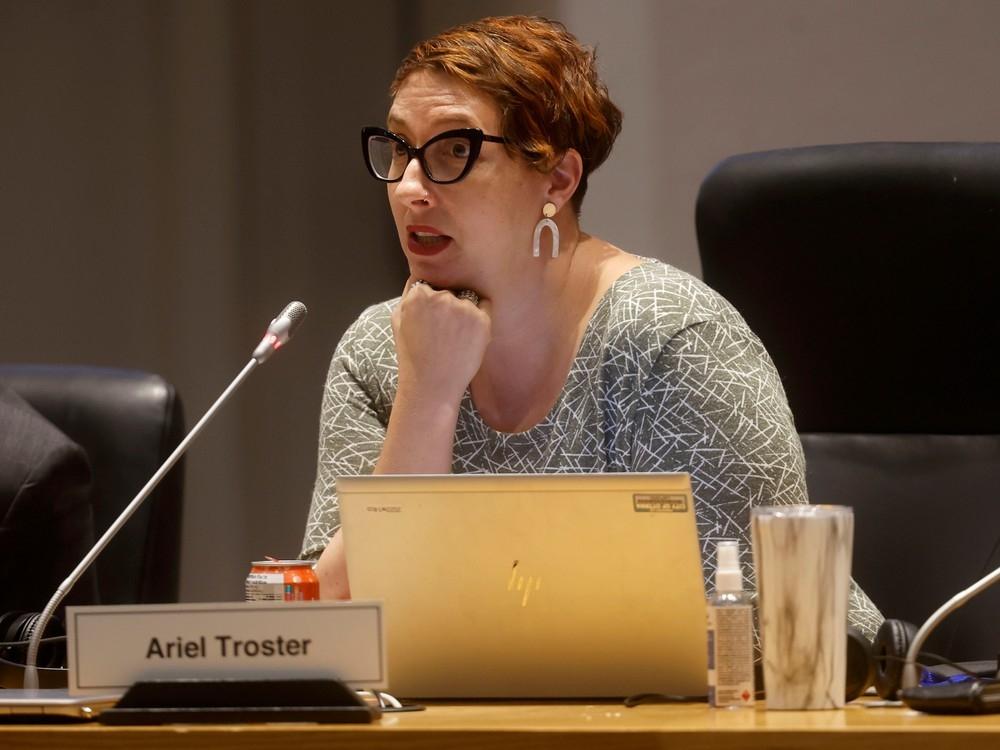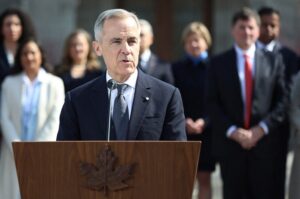
Ottawa’s Community Services Committee outlines spending plans for $48 million in provincial money earmarked for homelessness.
Ottawa city councillor Ariel Troster during the presentation of the new city budget for 2023 at Ottawa City Hall on Feb. 1, 2023.
Ottawa city councillor Ariel Troster during the presentation of the new city budget for 2023 at Ottawa City Hall on Feb.
If the province can spend $2 billion to forgive the fee for licence sticker renewals, it can do more to help the City of Ottawa tackle its homelessness problem, says rookie Somerset ward Coun. Ariel Troster.
“Everyone on council are committed to fighting homelessness and building as much affordable housing as possible, but we can’t do it without provincial support,” Troster said Tuesday after a meeting of the city’s Community Services Committee.
“We’re appealing to the humanity of the Ford government. To have entire families that have lived in the shelter system or in tiny hotel rooms for years is completely unacceptable,” Troster said.
“This is a province that has a massive unallocated surplus, that spent $2 billion to forgive licence sticker renewals. When this government wants to find money to do something, it can.”
At Tuesday’s meeting, councillors voted on how to allocate some $48 million in provincial funding to tackle homelessness. That includes $21.4 million in emergency shelters, $13.8 million in supportive housing, $8.2 million in housing assistance, and $2.6 million in street and community outreach services.
But Ottawa says it was shortchanged in a recent provincial announcement of an additional $202 million provincewide to boost spending on homelessness in the coming year. Ottawa received just $845,100 in additional funding for 2022-23, an increase of 1.8 per cent or just 0.4 per cent of the $202-million pie.
In an emailed statement, Victoria Podbielski, press secretary for Minister of Municipal Affairs Steve Clark, said the $48 million Ottawa is getting is the second-highest amount of any municipality in the province. The smaller $845,100 increase is to correct flaws in the funding formula uncovered by the auditor general.
“The new model was developed to more accurately reflect measures of local need based on feedback from municipal stakeholders and the Auditor General, who found in a 2021 audit that the previous model was based on outdated data that did not fairly reflect local need provincewide,” Podbielski said.
There are about 2,000 people in Ottawa who are living on the streets and the city’s emergency shelters, which include hotels and motels, are at about 350 per cent capacity, Troster said. That cost is born solely by the municipality, she said.
“We’re paying out of our own budget to house people in inadequate hotels and motels,” she said. “Those are really meant to be a temporary solution, but we’re finding families are staying longer and longer. Inflation is through the roof. The cost of food has never been more expensive.”
The average rent for a one-bedroom apartment in Somerset ward is $2,000 a month.
“We have a huge revenue problem in this city, whether it’s transit operating deficits or the cost of solving homelessness, which is a massive societal problem that we all have to take responsibility for,” Troster said. “I hate that we have to go cap in hand to the province and beg, but it’s a human-made disaster.”
The committee’s spending recommendations will go before the full city council on May 24.
Truly affordable rental housing is difficult to find in Ottawa and other major cities.
Currently, there are more than 2,000 people experiencing homelessness in Ottawa.







